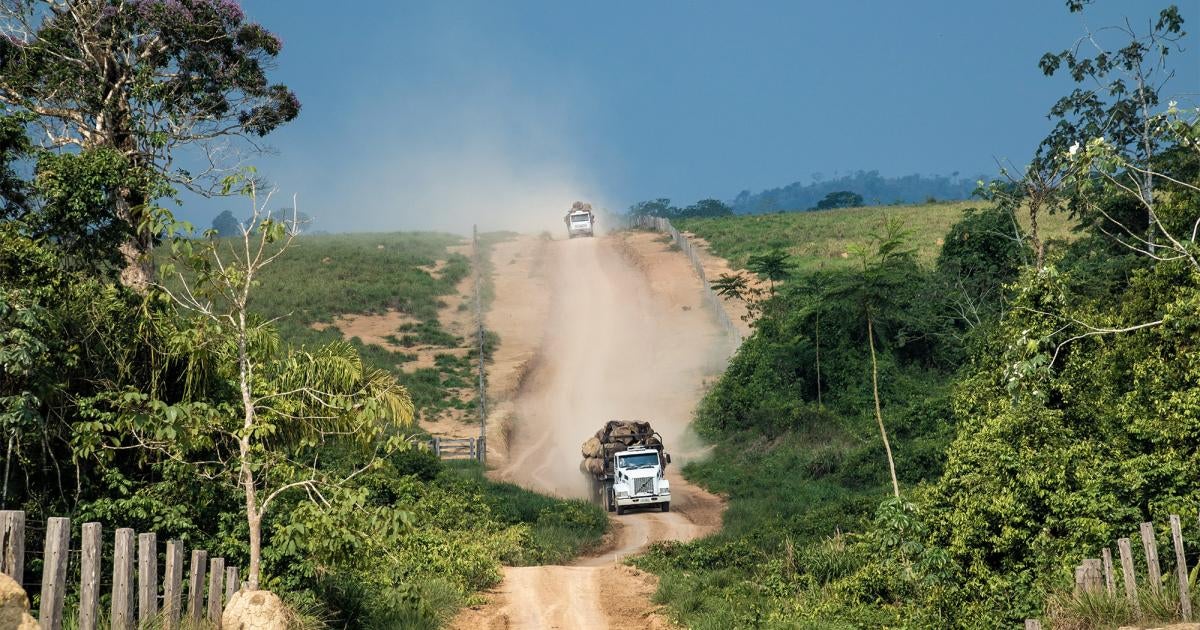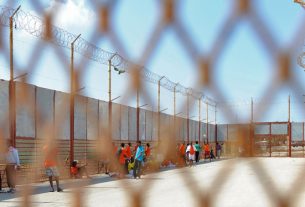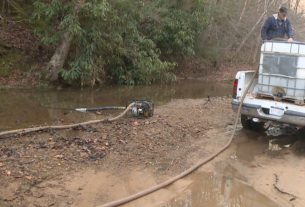(São Paulo) – Brazil’s President Luiz Inácio Lula da Silva should adopt urgent measures to address the human rights crisis underpinning the destruction of the Amazon rainforest and restore the rule of law, Human Rights Watch said today.
On January 26, 2023, Human Rights Watch published a multimedia report that details the impact of criminal groups involved in illegal land grabbing and logging inside Terra Nossa, a land-reform settlement intended for small-scale agriculture and sustainable collection of forest products in the state of Pará. The situation there shows the link between environmental destruction, violence, and poverty in many rural communities that depend on the sustainable use of the forest across the Amazon.
“It is encouraging that President Lula has pledged a fundamental shift in Brazil’s policies after years of mounting environmental destruction,” said Maria Laura Canineu, Brazil director at Human Rights Watch. “What we’re seeing in the Amazon is both an environmental crisis and a human rights crisis. The Lula administration should mobilize the government at all levels and coordinate with prosecutors to fight the criminal networks responsible for environmental destruction and deadly violence.”
Human Rights Watch presented its recommendations for better protection of the forest and its defenders, as well as the defense of human rights more generally, in meetings between January 23 and 25 in Brasília with the ministers of the environment, Marina Silva; of Indigenous people, Sônia Guajajara; of human rights, Sílvio Almeida; of agrarian development, Paulo Teixeira; and of racial equality, Anielle Franco; the head of Brazil’s main environmental agency, Rodrigo Agostinho; and high-level officials within the justice and foreign affairs ministries. In addition, Human Rights Watch met with the president of the Supreme Court, Rosa Weber; Supreme Court justice Carmen Lucia, and federal public defenders and prosecutors.
Indigenous peoples, small-scale farmers, and other local communities have been risking their lives as they try to hold on to their land and protect the environment and their livelihoods. They are faced with an onslaught of criminal networks involved in illegal logging, land grabs, and mining, which deploy armed men to threaten and attack those who speak up to defend the forest.
Community members believe those groups have killed at least four people for speaking up about the environmental crimes committed in Terra Nossa or threatening the interests of criminal groups there since 2018. A fifth man has been missing since 2018 and is believed dead.
The multimedia report includes testimony from witnesses asserting that in 2022 criminals started fires within the settlement that ravaged vegetation, crops, and the forest reserve where residents collect Brazil nuts that they depend on to survive. The criminals’ objective was not just clearing the land for cattle ranching or soy plantations, but to intimidate residents, destroy their livelihoods, and force them to leave, Federal Prosecutor Gabriel Dalla Favera de Oliveira said.
“They put pressure until you flee to save your life, and then they take over the land,” a resident told Human Rights Watch.
Since at least 2016, the federal land-reform agency, INCRA, has been aware that outsiders were illegally taking over the land in Terra Nossa, according to internal documents reviewed by Human Rights Watch, but it has failed to take measures to remove them.
These occurrences in Terra Nossa highlight the ways in which government inaction enables land seizure and environmental destruction, leading to violence, loss of livelihoods, and subsequent poverty.
The Lula administration should develop a comprehensive plan to protect the Amazon and its residents, such as the small farmers in Terra Nossa who are trying to defend it, Human Rights Watch said. The administration should bring together federal agencies, including INCRA, federal and state police, the Attorney General’s Office, and state governors to draft a plan, in consultation with local communities, to prevent environmental crimes and violence, and ensure accountability when they happen, including by dismantling criminal networks in the Amazon.
Such a plan should include enhancing the capacity of the agencies protecting the environment and Indigenous rights, as the Lula administration has already pledged, and institute safeguards and ongoing monitoring of the supply chain for gold, cattle, and other agricultural products to ensure they are not linked to deforestation.
It should resume titling Indigenous territories; expel illegal land-grabbers, including from INCRA settlements like Terra Nossa; cancel fraudulent land titles; and support communities that live off the sustainable use of the forest.
The Lula administration should also strengthen the national mechanism to protect human rights and environmental defenders and ensure that state-level programs have adequate funding, training, and institutional support.
“Destroying the rainforest enriches a handful of criminals and makes many Brazilians poorer,” Canineu said. “Reducing deforestation and combating poverty and inequality go hand in hand in the Amazon. It is possible and urgent to do both.”



